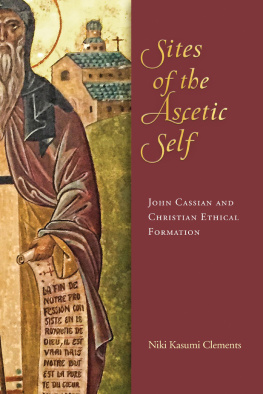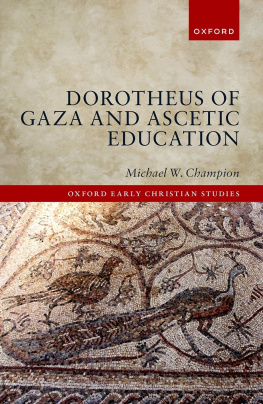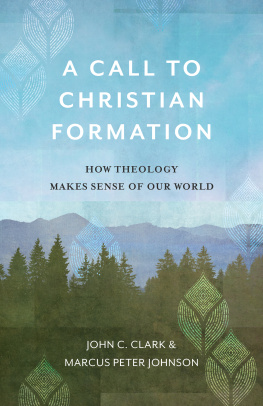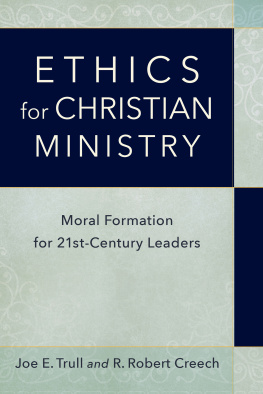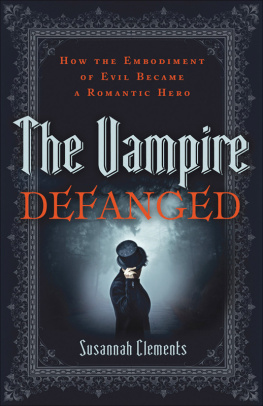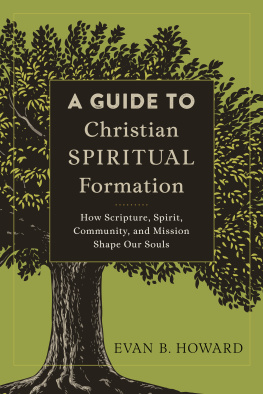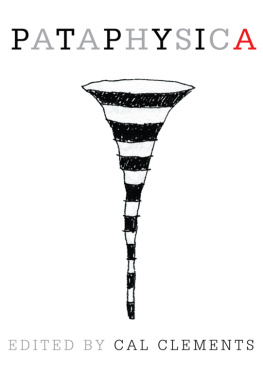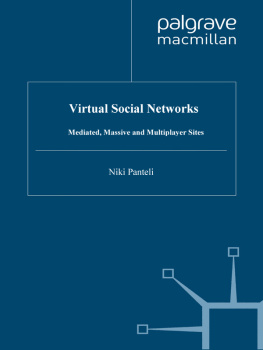Niki Kasumi Clements - Sites of the Ascetic Self: John Cassian and Christian Ethical Formation
Here you can read online Niki Kasumi Clements - Sites of the Ascetic Self: John Cassian and Christian Ethical Formation full text of the book (entire story) in english for free. Download pdf and epub, get meaning, cover and reviews about this ebook. year: 2020, publisher: University of Notre Dame Press, genre: Religion. Description of the work, (preface) as well as reviews are available. Best literature library LitArk.com created for fans of good reading and offers a wide selection of genres:
Romance novel
Science fiction
Adventure
Detective
Science
History
Home and family
Prose
Art
Politics
Computer
Non-fiction
Religion
Business
Children
Humor
Choose a favorite category and find really read worthwhile books. Enjoy immersion in the world of imagination, feel the emotions of the characters or learn something new for yourself, make an fascinating discovery.
- Book:Sites of the Ascetic Self: John Cassian and Christian Ethical Formation
- Author:
- Publisher:University of Notre Dame Press
- Genre:
- Year:2020
- Rating:5 / 5
- Favourites:Add to favourites
- Your mark:
- 100
- 1
- 2
- 3
- 4
- 5
Sites of the Ascetic Self: John Cassian and Christian Ethical Formation: summary, description and annotation
We offer to read an annotation, description, summary or preface (depends on what the author of the book "Sites of the Ascetic Self: John Cassian and Christian Ethical Formation" wrote himself). If you haven't found the necessary information about the book — write in the comments, we will try to find it.
Sites of the Ascetic Self: John Cassian and Christian Ethical Formation — read online for free the complete book (whole text) full work
Below is the text of the book, divided by pages. System saving the place of the last page read, allows you to conveniently read the book "Sites of the Ascetic Self: John Cassian and Christian Ethical Formation" online for free, without having to search again every time where you left off. Put a bookmark, and you can go to the page where you finished reading at any time.
Font size:
Interval:
Bookmark:
Sites of the Ascetic Self
Sites
of the
Ascetic Self
JOHN CASSIAN AND CHRISTIAN
ETHICAL FORMATION
NIKI KASUMI CLEMENTS
University of Notre Dame Press
Notre Dame, Indiana
Copyright 2020 by University of Notre Dame
Notre Dame, Indiana 46556
All Rights Reserved
Published in the United States of America
The author thanks Peeters Publishers for the rights to adapt for chapter 5 of Niki Kasumi Clements, Emotions and Ascetic Formation in John Cassians Collationes, Studia Patristica. Edited by Markus Vinzent and Ioannis Papadogiannakis. Special Vol. 83, no. 9 (2017): 24170.
Library of Congress Control Number: 2020007576
ISBN: 978-0-268-10785-7 (Hardback)
ISBN: 978-0-268-10788-8 (WebPDF)
ISBN: 978-0-268-10787-1 (Epub)
This e-Book was converted from the original source file by a third-party vendor. Readers who notice any formatting, textual, or readability issues are encouraged to contact the publisher at
For John Connor Mulligan
CONTENTS
ACKNOWLEDGMENTS
To acknowledge the sources of this book is to recognize sources over decades. From California to the Northeast to Houston, I have been supported, challenged, and motivated by individuals who have modeled how to live and think differently. I could ask for no better colleagues than those at Rice University, where this book took root in conversation with April DeConick, Jeff Kripal, Anthony Pinn, Bill Parsons, Elias Bongmba, Anne Klein, Marcia Brennan, Matthias Henze, Claire Fanger, David Cook, John Stroup, and Brian Ogren. Working across disciplines has its challenges and would not have been possible without the critical and charitable engagement of interlocutors in my department at Rice, in the Humanities Research Center, and across the School of Humanities.
From my time at Brown University, I am very grateful to the following: Thomas Lewis, Susan Ashbrook Harvey, Stephen Bush, Harold Roth, Mark Cladis, Stanley Stowers, and Ross Kraemer for sharing their intellectual force and institutional acumen. The Religion and Critical Thought vertical cohort also saw this work from its time as a seedling, notably Megan McBride, Anna Bialek, Caroline Kory, David L, Jonathan Sozek, Douglas Finn, Alexis Glenn, Alissa MacMillan, and Matt Duperon. I also thank, as a bit of Brown in Houston, Bob and Nancy Carney for their years of friendship and wisdom.
To find mentors in ones academic exemplars is a singular wonder, and I thank Elizabeth Clark from Duke University for enabling this book and the next, as well as Douglas Christie, from Loyola Marymount University, for his timely encouragement. From Harvard Divinity School, past and present, I am grateful for the critical formation of Amy Hollywood, Mark Jordan, Khaled Anatolios, John Behr, Jonathan Schofer, and Sarah Coakley. Elfie Raymond, Wendy Lipp, David Bernstein, Phillis Levin, Ali Nematollahy, and Cristle Collins Judd remind me of the best of Sarah Lawrence College and enabled my pursuit of the academic life. Cultivating the ethos of word and deed as a professor and writer has become an imperative through the examples of Biko Mandela Gray at Syracuse University and Gregory Perron at Rice University. For their exceptional generosity navigating the archives of Michel Foucault at the Bibliothque nationale de France in 2019, Laurence Le Bras, Philippe Chevallier, and the Foucault estate have my thanks, with my regrets that most of this research could be featured only in the next book. I am also grateful to my editor, Stephen Little, that our paths crossed and for his stalwart support alongside the excellent team at the University of Notre Dame Press.
This book has been shared, shaped, and rethought in enlivening intellectual communities, including the Boston University Symposium on the Future of the Philosophy of Religion, the Center for Advanced Study in the Behavioral Sciences at Stanford University, the Elizabeth A. Clark Center for Late Ancient Studies at Duke University, the International Symposium for Contemplative Studies with the Mind & Life Institute, the Kosmoi-Leuven Centre for the Study of Religion and Worldview, the University of Chicago Divinity School, Villanova Universitys Affect Camp, and the Rice Workshop in Humanistic Ethics. Special thanks to Ryan Coyne, Bob Davis, David Eckel, Sarah Hammerschlag, Anne Harrington, Jennifer Knust, Stephen Kosslyn, Laura Lieber, Margaret Mitchell, Matthew Peterson, Joseph Verheyden, and Vida Yao.
For various forms of support and solidarity through the years, I also thank Maria Aguilar, Melissa Bailar, Stephen Bradshaw, Lynn Brilhante, Kathleen Canning, Isaac Carroo, Nikki Carson, Silvia Cernea, Adam Clark, Davina Davidson, George Demacopoulos, Laura Dingeldein, Linda Dunleavy, Benjamin Dunning, Fars el-Dahdah, Elaine Howard Ecklund, Rebecca Falcasantos, Brett Grainger, Richard Harley, Diana Heard, George Hegarty, Sonam Kachru, Eva Kauppila, Jones College, Justin Kelley, David Liao, Sylvia Louie, Matthew Lyddon, Benjamin Marcus, Libby Matthews, Lynne McCabe, Zack Mezera, Jadrian Miles, Brenna Moore, the Mosles, the Mulligans, Marcie Newton, Aristotle Papanikolaou, Anya Parker, Amelia Perkins, Al Peters, Janet Peters, Daniel Picus, Aysha Pollnitz, Bilal Rehman, Ruth Robbins, Judith Roof, Malone Sams, Paula Sanders, Claudia Solis, the Solises, Robyn Schroeder, Kerry Sonia, Zoe Tao, Diane Terrill, Andrew Tobolowsky, Nicolas Shumway, Thaya Uthayophas, Matthew Wettergreen, Lisa Wahlander, Michelle White, Mara Willard, and Chloe Wilson.
The Clements familyTC, Michi, Sumi, Sachi, Suki, Kay, Frances, and Calebdeserves my sincerest appreciation for their love, support, and hilarity through four decades. My dearest friendsGwendolyn Bradford, Amanda Cadogan, Becca Cain, Holly Holmes, Tamsin Jones, Kristin LeMay, Rachel Smith, and Andi Winnetteall inspired and sustained me in this work. The existential and political urgency of committing to The Work came from Ryan Gosa and Paul Otremba, whose untimely passings motivated this book from beginning to end. This bookand indeed my selfwould not exist at all were it not for the brilliance and unfailing support of John Connor Mulligan, who has enabled me to live in this best of fractured worlds with love, whimsy, Rabbit, and Domino.
Introduction
Around 380 CE, a well-educated young man of some means leaves his lushly wooded native land of Scythia Minor near the Black Sea for the Mediterranean coast of Palestine. Once established in their routine and living quarters in Bethlehem, John and Germanus receive a third inhabitant for their domicile. This old man seems to be the least amongst theman ignoble entrant to the monastery occasioned by bodily infirmity and age as opposed to a true commitment to the monastic life.
But then come his stories. Pinufius, as the man calls himself, describes the wondrous workings of ascetics in the Egyptian desert, stressing their virtues of humility and obedience. There was Abba John, whose exemplary obedience led him to perform the most absurd of tasks: smashing a precious oil vessel, sweating while failing to move an impossibly large boulder, and watering a lifeless stick for a year simply because his elder commanded him to do so.
The most spectacular revelation of humility, however, is that of Pinufius himself. It turns out that this old man despised in Bethlehem is Abba Pinufius, the acclaimed elder of a community in Panephysis in the Egyptian desert.
Their imaginations captured by such stories, both told to them by Pinufius and enacted before their eyes through his example, John and Germanus receive blessings from their own superiors to set out for the desert cells of Egypt. The conversations revivified through the writings of John, known to history as John Cassian (Iohannes Cassianus) (c. 360c. 435), twenty years removed from the desert and in the Gallic seaport of Massilia, detail the themes, practices, and concerns of the ascetic life.
Font size:
Interval:
Bookmark:
Similar books «Sites of the Ascetic Self: John Cassian and Christian Ethical Formation»
Look at similar books to Sites of the Ascetic Self: John Cassian and Christian Ethical Formation. We have selected literature similar in name and meaning in the hope of providing readers with more options to find new, interesting, not yet read works.
Discussion, reviews of the book Sites of the Ascetic Self: John Cassian and Christian Ethical Formation and just readers' own opinions. Leave your comments, write what you think about the work, its meaning or the main characters. Specify what exactly you liked and what you didn't like, and why you think so.

